Symposium 2022 Reflections
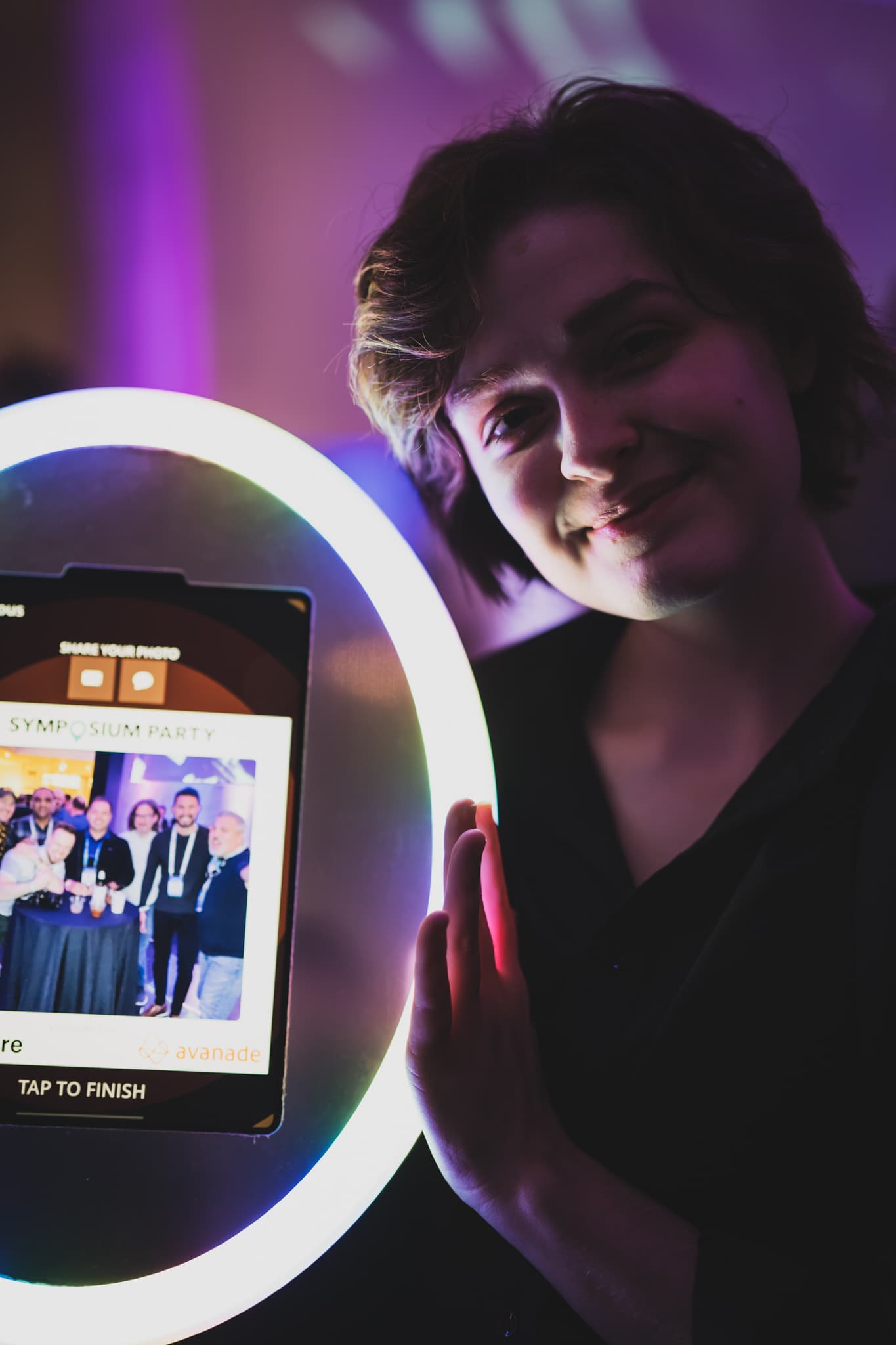
Index
TLDR;
Sitecore is making serious moves to modernize, optimize, streamline, and simplify. From my perspective, the biggest evidence of this is Sitecore's partnership with Vercel. Vercel is taking the web world by storm with its innovations in web performance and developer experience. Sitecore is cozying up with Vercel in a big way.
The products launched / announced were:
- Content Hub One - mini XM that is fast to implement
- Search - reflection engine
- Connect - drag and drop integration platform
- XM Cloud - SaaS successor to XP
See this post for an excellent summary of the major announcements.
With so many changes coming down the pipe, particularly around headless and XM Cloud, there is much uncertainly about how this will all unfold. I don't believe there are any easy answers. However, Sitecore said they are on an "enablement journey" to get everyone transitioned to DXP where possible. Sitecore scaled up their support team. Sitecore also announced their "Sitecore 360" customer success plan which appears to be a flexible credit system where customers can spend their credits on different areas of support when they need that kind of support (education, launch readiness, optimization, product support, etc.)
Short Notes
- Sitecore has transitioned to fully cloud micro services
- Sitecore Connect was built with Marketo
- As partners, we should be taking advantage of the same tech as sitecore, so GraphQL, webhooks, rules engine, etc.
- Sitecore is supposedly still very much wanting to support private cloud customers because many competitors have walked away from that and moved solely to SaaS
- The content experience IS the customer experience
- Sitecore XM/XP 10.3 is a bridge to XM Cloud
- Pages is the successor to Horizon
- Because Vercel also builds NextJS, they have full control, kind of like Apple
- You can do Vercel deployments from within the XMC dashboard
- Vercel is doing for front end development what Stripe did for payments
- Personalize plus Vercel is going to change the world, according to the CEO of Vercel
- Composable deploys are done with GitHub Actions and pipeline is split out by YML files for each site
- Docker for local development for fully offline development, but the way to go is to lean on XMC to power the local environment
- Mobile TikTok is powered by NextJS for the FULL STACK. And TikTok is now a more popular search engine than Google
- With XM Cloud, GE Healthcare, rebuilt a mess of a site in around 6 weeks, improved all metrics, and streamlined their DevOps
- Sitecore certified more people this year than the entire history of Sitecore
- The CMO said that diversity / inclusion / personalization results in more complexity and results in "complexification of the customer journey"
- Sitecore CEO said Sitecore will not compete with their partners
- Sitecore doubled? their support team
- Sitecore CEO acknowledged that solution stacks are too expensive and too complex. He wants partners to simplify. Wants to lower total cost of ownership - they “have our back”
- Touch, tell, sell, care
- Thule serves 81 markets and 3x languages and only has one content author!
- Their Search offering was built by a bunch of ex Googlers. It is live on Sitecore.com today.
- Search can index info from any CMS (like Coveo)
- Cloud Portal brings a monolith experience together with a composable architecture. It's a gateway to the DXP.
- The only JS framework they support for XM Cloud is Next. So not Nuxt and not Blazor.
- IOT is growing exponentially
- Sitecore's composable suite of products revolves around
- Content
- Engagement
- Commerce
- Sitecore is in a hurry and is laser focused on best of breed composable
- According to O'Flanagan, Sitecore is passionate about simplicity
- XM works with CDNs and NextJS and is "versionless" and needs no upgrades
- XM Cloud has a new visual builder
- Sitecore has site templates which can be extended by partners
- XM Cloud has everything XP had and more, which means personalization, testing, and analytics are all integrated
- XM Cloud is Sitecore's successor to XP; NOT XM
- CDP and Personalize are upgrades for XMC
- CHO (content hub one) is a simpler CMS. It is headless.
- NextJS plus XMC is much more accessible to devs, so it opens up the talent pool. This is good for companies, but perhaps bad for devs because it commoditizes them
- "Decoupled integrations"
- The XM Cloud team uses feature flags that can be enabled for certain customers, regions, and even sessions, which goes to show how powerful their stack is and how agile it allows them to be
- Sitecore has certified more people this year than the entire history of Sitecore
We're Going Exponential
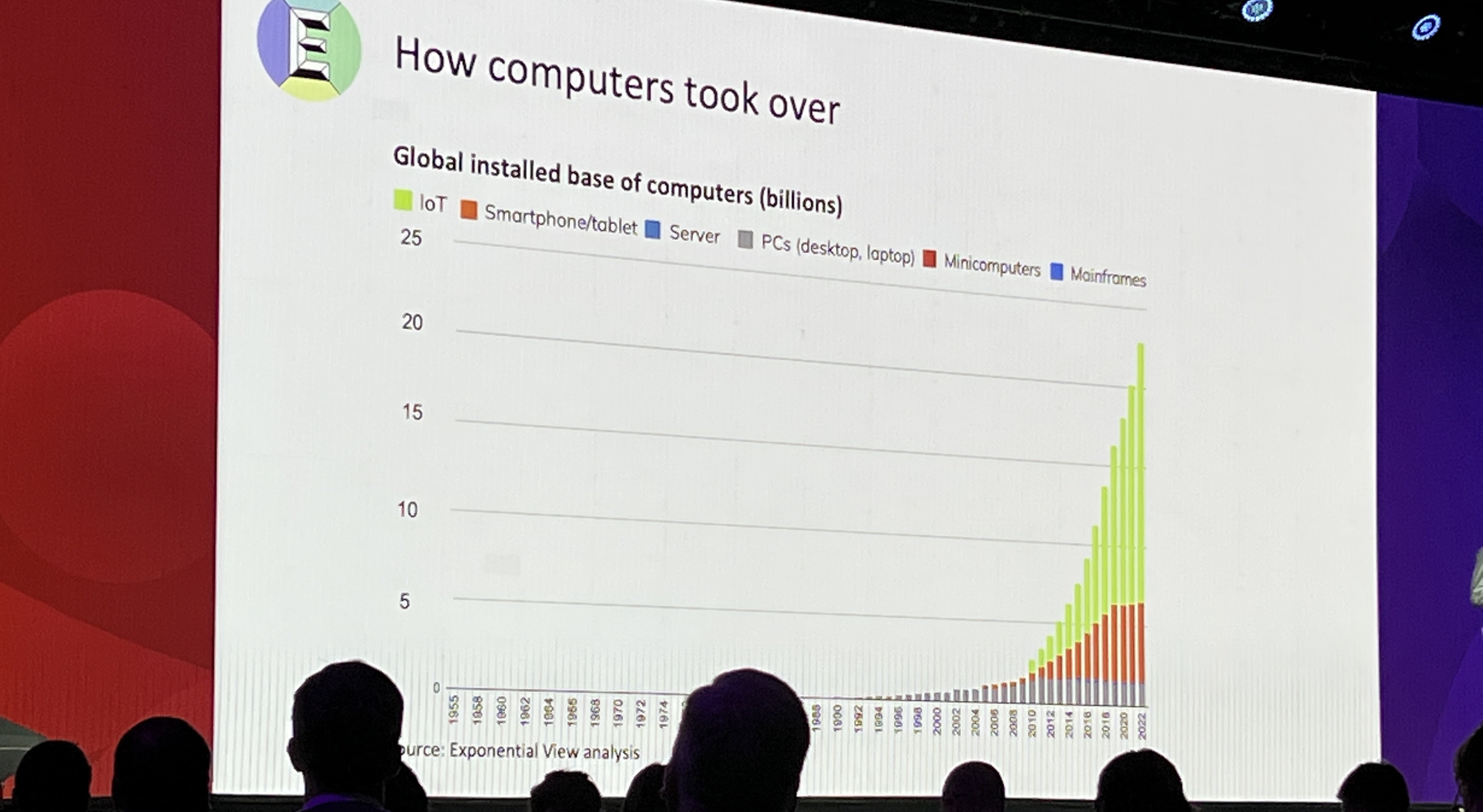
The fact that Azeem Azhar presented tells us a lot about Sitecore's corporate culture right now. Azhar is the author of The Exponential Age: How Accelerating Technology is Transforming Business, Politics and Society.
The speed at which new technology is adopted by the masses is increasing. Old tech is becoming obsolete in a shorter time frame. The cycles of change are getting shorter and more dramatic. Here's something to think about: Sitecore has certified more people this year than the entire history of Sitecore.
Another example: during NextJS Conf 2022 yesterday, the CEO of Vercel proudly declared that their optimizations in build and warmup speeds have resulted in decades of saved time. Decades. That's just for JS projects, which already compile and cold start in what many would consider almost no time at all.
I have worked on numerous Sitecore MVC projects with compile times of 3 to 7 minutes. After the compilation is complete, there are usually another several minutes spent waiting for the site to warm up. Then you have DevOps pipelines. It's not uncommon for those to take between 30 and 60 minutes. Sitecore's adoption of modern development and DevOps technology will vastly shorten development cycles. This will be huge for the ecosystem.
On JS Libraries and Frameworks
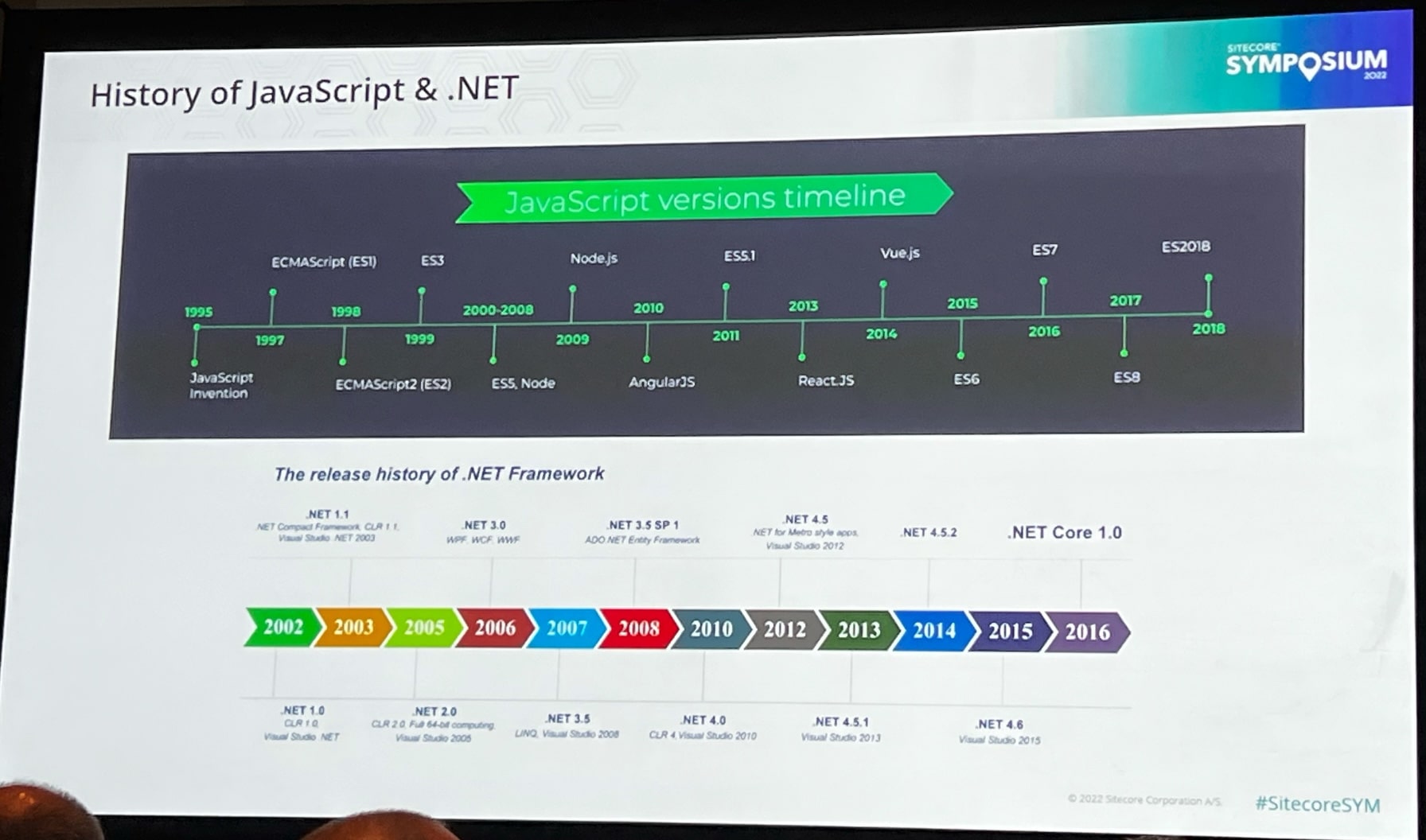
JavaScript libs and frameworks are a meme. They come and go faster than anyone can keep up. The end result is that there is a lack of consistency in tech stacks across projects, suboptimal implementations due to lack of experience, and complications with development, maintenance, upgrades, hiring, etc.
Here's something that no one is talking about.
Sitecore is going all in on headless + React + NextJS + Vercel. It's clear that other frameworks such as Angular and Vue have taken a backseat. I'm actually in favor of that. However, I get the sense that Vercel isn't so naive as to keep putting all of their eggs in the React and NextJS baskets. Yes, Vercel is working closely with core dev teams at Google and React to make incredible improvements, but with the hiring of Rich Harris (creator of Svelte and SvelteKit), it's clear that Vercel is investing in newer tech that takes a notably different approach as compared to React and NextJS.
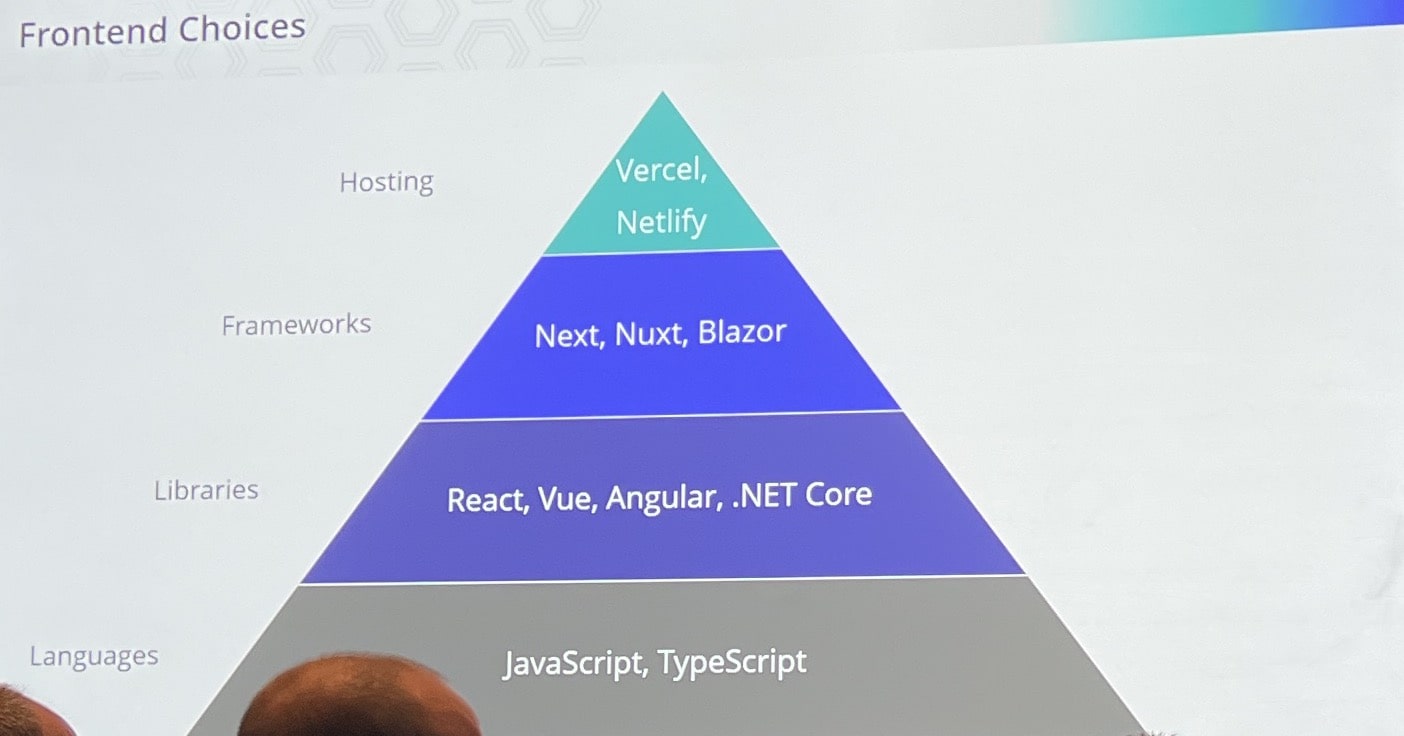
While React has incredible industry adoption, a huge community, and great documentation, it has issues and limitations, and the developer experience could be better. There are newer frameworks that offer better solutions. Svelte stands out as one of them. The developer experience of Svelte is almost unbelievably good. Unsurprisingly, it has been voted as the "most loved web framework."
Someone at the sym mentioned Mitosis for building JS components once and compiling to multiple JS frameworks. We may enter an age in development where we code with a full stack and cross-platform language such as JS, and also write the components in such a way that allows those components to be compiled into multiple frameworks at the same time.
Macro Trends & Future Tech
We all know the macro trends: composable, cloud, edge, personalization, IOT, Metaverse, blockchain, AI, ML, AR, VR, etc.
L'Oréal, one of Sitecore's most prominent clients, is now selling NFTs and entering the Metaverse. I can hardly believe it, but this became obvious to me when the presenter from L'Oréal said the phrase, "online, offline, and onchain."
This conference made it clear to me that companies are making big moves into future technologies. According to what was presented, the allure of the Metaverse revolves around exclusive access, diverse representation, and community. One of the presenters mentioned that people will spend more time in the Metaverse than anywhere else. It starts to become more clear when you realize that you don't need a VR headset to enter the metaverse. One example: you can use basic video conferencing software such as Teams. A Metaverse demo was presented with a product showroom which showcased intricate 3D models of products.
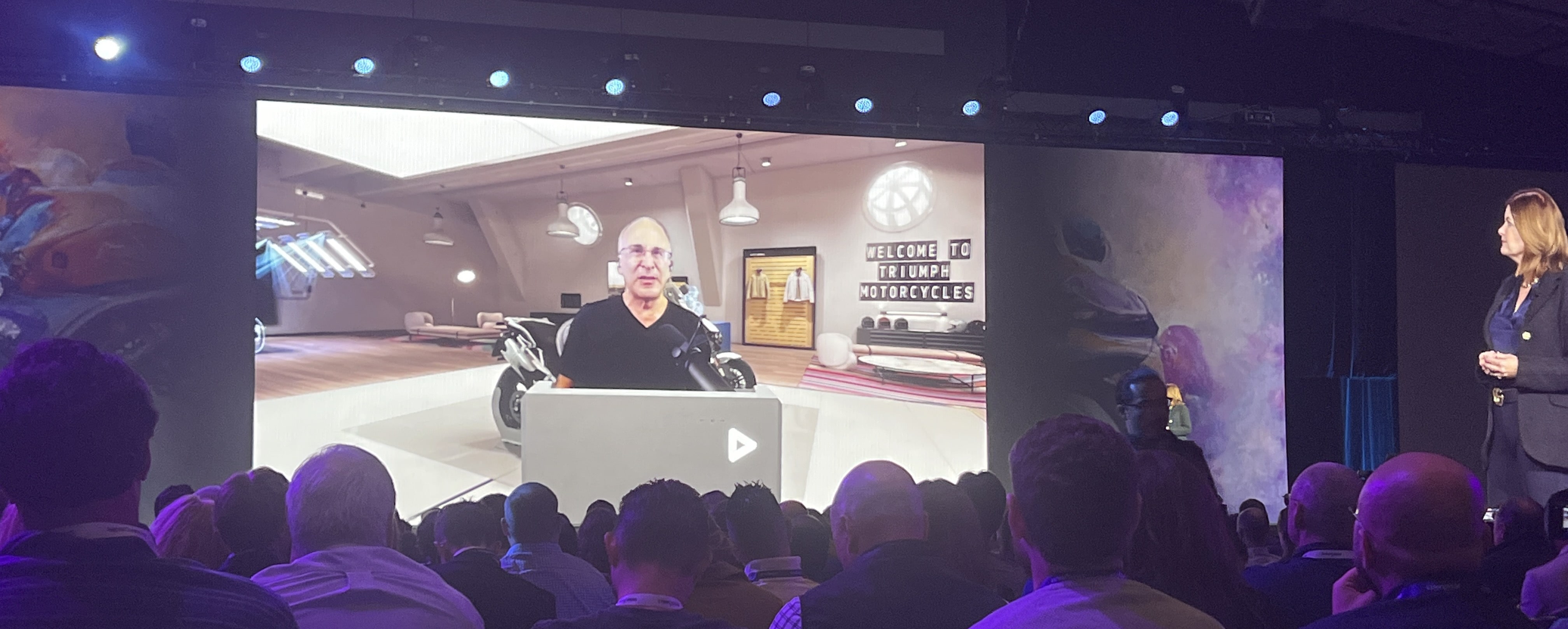
Sitecore also revealed that they have been diving into AI generated images sourced from a company called Midjourney. The AI generates images based on text descriptions. Many examples were shown throughout one of the presentations.

Given that one of Sitecore's three major focus areas is on content, and given that images are a crucial part of content, this makes perfect sense. Content Hub + AI content. I suspect we'll see direct DALL-E and MidJourney integrations where content authors can generate and publish AI images instantly. Having this functionality a few keystrokes and clicks away exponentially shortens content creation cycles.

A few last thoughts about AI generated images:
- As far as I can tell, AI image generation will commodify low end designers. It will disrupt stock image companies.
- Due to how cheap and fast it is to produce, AI generated content may become the norm. Eventually, human curation and real quality art / images / content will become more valuable and sought after.
Fireside Chat w/ Mindy Kaling
I love The Office as a show, but wouldn't call myself a fan of Mindy Kaling. Not that I have anything against her, but she was never on my radar. It's always funny to watch or meet celebrities who you don't see as celebrities.
Mindy spoke about cancel culture and how The Office could not be created today because we're in an age of hypersensitivity. She has two kids. She talks about authenticity and walking the fine line between being honest and also keeping her sponsors and business partners in mind. She seems to be very sensible overall. She said that life is hard for everyone and that no one wants to hear a celebrity or rich person complaint. She has a working class mindset because that's where she came from; a "child of immigrants ethos". She said that when people come home and turn on the TV, they want to be entertained. She doesn't want to teach or preach to people.
My main takeaway was that amidst all the chaos and conflict in the world, people and businesses would benefit from focusing on being authentic and continuing to deliver what their clients and audiences love them for, rather than wading too far into political waters, unless of course, wading into political waters is what your audience loves you for :)
Afterparty
The main afterparty took place at the Museum of Science and Industry. The museum has 4 MASSIVE levels of interactive exhibits, including:
- The world's largest Lego® art display
- Colossal U-505 submarine - the only German submarine in the US
- Apollo 8 capsule
Amazing exhibits, unlimited food and drinks, live string bands, photos, good people, dance floor, DJ... What more could you want? I'm already FOMOing about next year's party.
Symposium Tips
If you consider yourself an engaged member of the Sitecore community, I found these guidelines to be helpful when attending Symposium:
- Check out all the booths for free goodies and contests.
- Collecting points for the game can be a great way to gamify the event, although it can cause you to become fixated primarily on collecting points. Is the grand prize worth the effort?
- Have a strategy going into the conference.
- Set some time aside to reflect and plan each day. Sitecore sends helpful emails during the conference that help with this.
- Take photos and selfies with other people.
- Sign up for sessions as soon as registration opens up.
- Take opportunities to talk to people and catch up IMMEDIATELY. If you think you'll be able to catch up with someone later, you probably won't get the chance. There are too many people and too much chaos. It's hard to predict how the event will unfold, and embracing a certain amount of serendipity is one of the reasons why people attend the event in-person.
- Fill out the event survey after the sym — it's a good reflection opportunity and you can win a prize.
- Add new contacts on Twitter and LinkedIn ASAP.
- Go easy on the liquor :)
Closing
I'd like to thank One North for flying me to Chicago to attend the Symposium. I look forward to the next one.
Cheers,
Marcel





